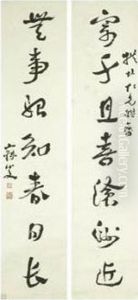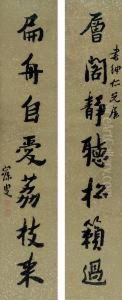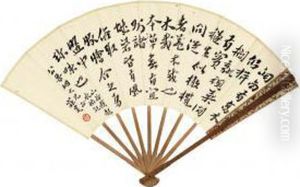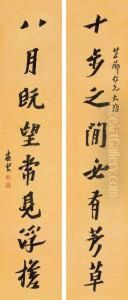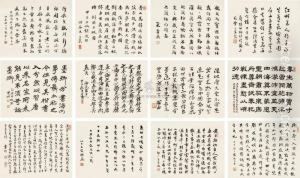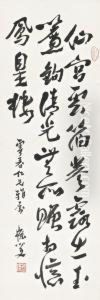Shen Zengzhi Paintings
Shen Zengzhi was a Chinese poet, calligrapher, and painter, born in the late Qing Dynasty and whose career extended into the early Republic of China. Born in 1879 into a family with a strong scholarly tradition, Shen was immersed in the arts from a young age. He was known for his classical poetry, which drew upon the rich traditions of Chinese literature, but he was also influenced by the rapidly changing society around him.
Shen's artistic talents were not limited to poetry. He was also a skilled calligrapher, with a style that was rooted in the elegance and simplicity of the past. However, he brought his own contemporary sensibility to this ancient art form, integrating personal expression with traditional techniques. As a painter, Shen Zengzhi was appreciated for his delicate brushwork and his ability to capture the essence of his subjects with minimal strokes.
Despite the relatively conservative nature of his art, Shen Zengzhi lived through a period of great turbulence in China. The fall of the Qing Dynasty in 1911 and the subsequent establishment of the Republic of China brought about significant social and political changes. These events inevitably influenced Shen's work, leading him to incorporate modern themes and ideas into his art.
Shen Zengzhi's contribution to Chinese art was cut short by his untimely death in 1922. Though he lived for only 43 years, his work left a lasting impact on the art of modern China. His poetry, calligraphy, and paintings are still studied and admired for their blend of traditional skill and innovative perspective. Shen's legacy is that of an artist who bridged the gap between the old and the new, and whose work reflects the complexities of a nation in transition.
